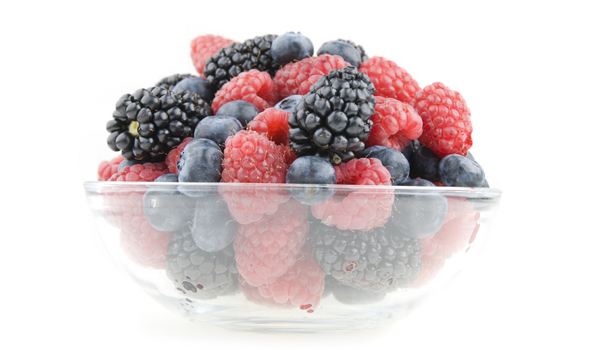Black Raspberries Help Prevent Colorectal Cancer in Mice

Compounds found in black raspberries are effective in preventing colorectal cancer tumors in mice, according to a new study.
The fruits contain compounds called anthocyanins, which give them their color, along with a host of other cancer-fighting vitamins, minerals and acids, said study researcher Gary Stoner, a professor at the College of Medicine at the Ohio State University.
"Due to the high levels of these compounds, the berries have high antioxidant activity," Stoner told MyHealthNewsDaily. He added that it makes them effective in destroying toxic free radicals in the body, which can damage DNA in cells.
If the same result is found in humans, the fruit could be used to help prevent colorectal cancer. Previous studies have found black raspberries which are different from blackberries to play a role in preventing esophageal, oral and skin cancers, he said.
Ripe results
Researchers genetically engineered two types of mice to test the benefits of black raspberries. One type was engineered to develop intestinal tumors, and the other type was engineered to have colitis, an inflammation of the large intestine that can lead to colorectal cancer .
For 12 weeks, all mice were fed a "high-risk" diet which was high in fat and low in calcium and vitamin D and some were also given a supplement, so 10 percent of their calories came from freeze-dried black raspberry powder.
Sign up for the Live Science daily newsletter now
Get the world’s most fascinating discoveries delivered straight to your inbox.
Both types of mice that ate the black raspberry powder had fewer tumors than the mice not given the supplements.
Among mice engineered to have intestinal tumors, the growth of new tumors decreased by 45 percent, and the total number of tumors in the mice decreased by 60 percent, the study said. The black raspberries stopped tumors from developing by suppressing a protein that binds to the gene that the scientists genetically modified in the mice, the researchers said.
In the mice engineered to have the intestinal inflammation, new tumors and number of tumors were reduced by 50 percent, because the black raspberries worked to reduce inflammation, according to the study.
To get the equivalent of the supplements the researchers gave the mice, a human would have to eat four cups of fresh berries a day, said study researcher Dr. Wancai Yang, an assistant professor at the University of Illinois at Chicago.
That's a lot for humans, but the animals used in the study were engineered to be susceptible to cancer. So for humans, "it is not necessary to eat so much fresh berries to have similar benefit of cancer prevention," he said.
Findings for fruit
Other berries, such as blueberries and strawberries, are also known to have cancer-preventing effects, but their effects are not as great as those of black raspberries, Yang said.
A 2001 study by Stoner in the journal Carcinogenesis found freeze-dried berries stopped the changes that take place cells and lead to cancer. The study used animal cells grown in lab dishes.
And two 2009 studies one conducted in cells in lab dishes and one conducted in mice found that compounds in black raspberries can prevent and stop proliferation of esophageal tumor cells. The studies were published in the journals Nutrition and Cancer and Cancer Prevention Research.
Because the black raspberries were shown to lower inflammation, it's possible that they can also protect against other diseases, such as heart diseases, the researchers said.
The new study was published in the November issue of the journal Cancer Prevention Research. The work was funded by UIC and the National Cancer Institute.










